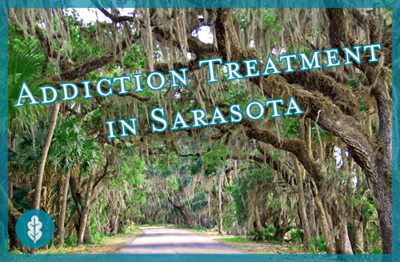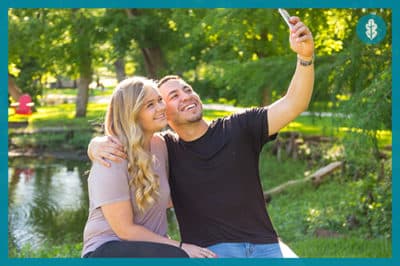The Addiction Treatment Landscape in Sarasota
 A picturesque coastal city in southwestern Florida, Sarasota is located in the county of the same name, and it has a lot to offer its residents, including many resources for addiction treatment. Sarasota’s close proximity to the ocean and easy access to South America make it susceptible to illicit drug trafficking; it therefore has increased drug availability, which can lead to drug abuse.
A picturesque coastal city in southwestern Florida, Sarasota is located in the county of the same name, and it has a lot to offer its residents, including many resources for addiction treatment. Sarasota’s close proximity to the ocean and easy access to South America make it susceptible to illicit drug trafficking; it therefore has increased drug availability, which can lead to drug abuse.Cocaine, methamphetamine, marijuana, heroin, and prescription drugs are all substances of abuse and concern in this region of Florida, per the Central Florida High Intensity Drug Trafficking Area (HIDITA) Drug Market Analysis 2011. As many as 14 Floridians die every day from opioid-drug related causes, the Miami Herald warns, and the Sarasota County Health Department’s Epi-Gram: Special Edition published in 2010 that Sarasota County ranked sixth for unintentional poisoning deaths in Florida. In Sarasota County, there were 81 opioid-related deaths in 2015 and 199 non-fatal overdoses between January and October 2016, the Florida Behavioral Health Association’s Florida’s Opioid Crisis publication reports.
Heroin and fentanyl overdoses are becoming more common, as heroin deaths spiked from 47 in 2013 to 213 in 2015. Sarasota County had the second highest fentanyl-related overdose death rate in all of Florida in 2015, behind neighboring Manatee County.
Within Sarasota, there are many different types of treatment resources open to local families and individuals. In general, resources are broken down into three main categories: prevention and crisis services, treatment, and recovery services. There are both public and private facilities in Sarasota, offering a wide range of treatment programs and modalities to foster and sustain addiction recovery.
Public Addiction Treatment Options
“Public addiction treatment in the state of Florida is open to any resident who needs care despite financial situation.”
Florida’s public behavioral health services are localized and overseen through a local Managing Entity (ME). For Sarasota and Sarasota County, the local ME is the Central Florida Behavioral Health Network (CFBHN). The MEs are contracted through the Florida Department of Children and Families (DCF) and the single state authority (SSA) on substance abuse the Office of Substance Abuse and Mental Health (SAMH). CFBHN then subcontracts services out to local community-based providers.
Services are provided on a “sliding scale” based on a person’s income. Priority is given to individuals who are classified as “emergent” and present an immediate danger to themselves or others, or who need detox services right away, per CFBHN. Pregnant women and families where children are at risk due to substance abuse concerns also receive priority treatment. To provide public services that utilize federal, state, and local funds and grant money to pay for treatment costs, a facility must be licensed by the state of Florida.
Services that DCF-licensed facilities and community-based providers can offer to Sarasota residents include crisis management and stabilization, preventative and educational measures, detoxification, medical and clinical services, counseling, inpatient and outpatient treatment services, transitional housing, parenting classes, life skills training, group and individual peer-based counseling, case management, assessments, treatment for co-occurring mental health disorders, and recovery support services. Individuals may enter into a public treatment program voluntarily or through an involuntary commitment.
Another form of involuntary or mandatory treatment is provided through the Marchman Act. This law allows family members or loved ones to get a person into treatment when they are unable to self-admit due to substance abuse.
Nonprofit and Not-for-Profit Organizations and Coalitions
 Nonprofit and not-for-profit treatment providers may receive grant, federal, state, and local funding to provide community-based addiction treatment services to residents of Sarasota. These licensed providers offer affordable treatment in a variety of settings and through many different programs.
Nonprofit and not-for-profit treatment providers may receive grant, federal, state, and local funding to provide community-based addiction treatment services to residents of Sarasota. These licensed providers offer affordable treatment in a variety of settings and through many different programs.
Community coalitions often serve to advocate for treatment, help to reduce the stigma associated with addiction, and provide educational programs and preventative resources to the public. Community coalitions work to reduce substance abuse in their local areas and promote a healthy and well-connected society.
Details on specific Sarasota nonprofit and not-for-profit addiction treatment providers as well as local coalitions active in Sarasota can be found below.
- Florida Alcohol & Drug Abuse Association (FADAA): This nonprofit organization offers education, preventative measures, resources, and advocacy to numerous community-based treatment providers and managing entities around the state of Florida.
- Drug Free Sarasota: This community coalition is determined to prevent drug abuse and educate the public on its hazards.
- NOPE Sarasota: The Narcotics Overdose Prevention & Education (NOPE) taskforce provides presentations and educational resources to students in Sarasota and their parents at schools and other forums. They detail the perils of drug abuse, addiction, and the potential for a life-threatening overdose.
- Sarasota Coalition on Substance Abuse (SCoSA): This community-based organization advocates for the prevention and treatment of substance abuse for a drug-free community. SCoSA also acts as a liaison, coordinator, and referral service, helping individuals to navigate local addiction treatment options in Sarasota.
- Sarasota Medical Alliance Foundation: The non-profit component of the Sarasota County Medical Society Alliance, the foundation enhances health education and promotes a healthy community by supporting the wellbeing of local families and residents.
- First Step of Sarasota (FSOS): This nonprofit provider of addiction treatment services serves residents of Sarasota County and offers detox, inpatient, and outpatient programs in several different locations around the city and throughout the county.
- Florida Suicide Prevention Coalition: This organization provides resources on suicide prevention and education to residents of the Sunshine State.
- Tobacco-Free Florida: This campaign is managed by the Florida Department of Health (DOH) and strives to reduce tobacco use in Florida by providing educational and preventative resources to its residents.
- Coastal Behavioral Healthcare: This not-for-profit provider of behavioral health services to residents of Sarasota, Lee, and Charlotte counties offers various addiction treatment programs and research-based treatment methods in multiple locations.
- Operation PAR, Inc.: This organization provides integrated mental health and addiction treatment at locations throughout Florida, including one in Sarasota. It is a nonprofit treatment provider that focuses on opioid addiction and offers medication-assisted treatment, preventative services, detox, residential and outpatient programs, and services tailored to each individual.
- Jewish Family and Children’s Services (JFCS) of the Suncoast: This nondenominational and Jewish-focused nonprofit organization provides services within Sarasota, Lee, Collier, DeSota, Manatee, and Charlotte counties with 27 different community-based locations. JFCS offers a wide range of treatment services to enhance overall quality of life and promote a self-sustaining lifestyle.
Transitional, Recovery, and Additional Addiction Treatment Services
 In addition to publicly funded addiction treatment, there are also many private addiction treatment facilities within Sarasota. A private program may have more availability and be able to provide more treatment options and services than public programs offer. These programs often accept health insurance and have many different options to help individuals and families pay for treatment. The Substance Abuse and Mental Health Service Administration (SAMHSA) hosts a Behavioral Health Treatment Services Locator that individuals can use to find treatment options in the Sarasota area.
In addition to publicly funded addiction treatment, there are also many private addiction treatment facilities within Sarasota. A private program may have more availability and be able to provide more treatment options and services than public programs offer. These programs often accept health insurance and have many different options to help individuals and families pay for treatment. The Substance Abuse and Mental Health Service Administration (SAMHSA) hosts a Behavioral Health Treatment Services Locator that individuals can use to find treatment options in the Sarasota area.
Often, individuals may benefit from a kind of middle ground between a highly structured residential treatment program and a full return back into society. These programs, called transitional programs, are often sober living communities where groups of individuals with similar goals and expectations live together while adhering to specific house rules.
Residents of sober living homes are expected to pass regular drug tests, remain abstinent from alcohol and drugs, and keep up with daily house chores. Residents in transitional programs attend regular meetings and sessions, and may return to work or begin slowly easing back into standard life obligations. The Florida DCF publishes a listing of public Certified Recovery Residences in Florida and Sarasota.
Other recovery resources include 12-Step programs and peer-based recovery services. These programs are free to join and open to anyone who wishes to remain sober. In Sarasota, Alcoholics Anonymous (AA) has a Central Office of Sara-Mana that provides information on local meetings. Local Narcotics Anonymous information can be found via Suncoast NA.
Finally, the Florida DCF publishes a list of public methadone clinics that provide medication-assisted treatment to individuals battling opioid addiction in Florida overall and Sarasota in general.
It’s Never Too Late to Get Help
Take Action Now